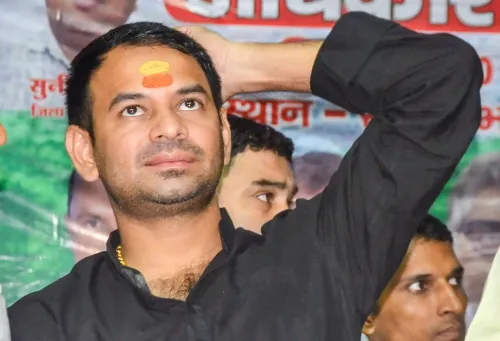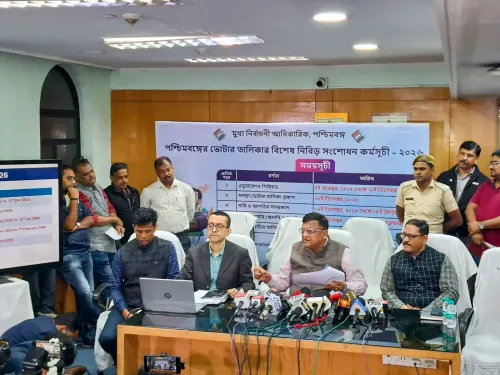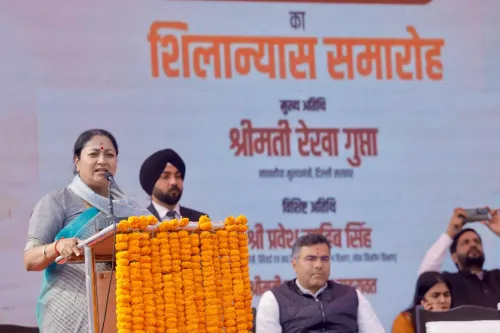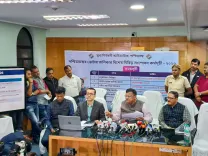What Happened to the Army Soldier in the Doda-Udhampur Encounter?
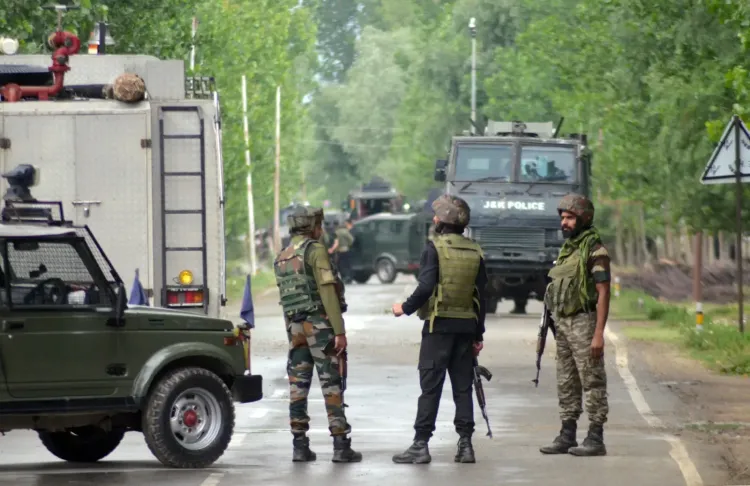
Synopsis
Key Takeaways
- Army soldier succumbs to injuries during an encounter.
- Two to three militants reported to be trapped.
- Joint forces are maintaining strict cordons to prevent escape.
- Operations intensified in response to renewed terrorist activity.
- Strategic focus on dismantling the ecosystem of terror.
Jammu, Sep 20 (NationPress) An Army soldier who was injured during the ongoing clash between joint forces and terrorists in the Dudu Basantgarh region, which borders Jammu and Kashmir's Doda and Udhampur districts, passed away on Saturday.
The anti-terror operation commenced following credible intelligence reports indicating the presence of terrorists in the hilly terrain of Dudu Basantgarh.
According to officials, one soldier, who was injured during the initial exchanges of fire, has sadly succumbed to his injuries.
His identity is currently being withheld pending formal protocols. Officials remarked that this sacrifice highlights the persistent challenges faced by security personnel in counter-militancy operations amidst rugged landscapes.
Initial assessments indicate that two to three militants remain trapped as the encounter continues. Additional reinforcements have been dispatched, and joint forces are enforcing strict cordons to obstruct escape routes.
In recent weeks, security forces have intensified operations in Doda and nearby regions, attributing it to a resurgence of terrorist activities in elevated areas.
"The encounter is ongoing. Joint teams comprising SOG, police, and the Indian Army are on the ground," stated Jammu IGP in a post on X.
Earlier, on June 26, a terrorist named Haider, who was a high-ranking commander of the Pakistan-based Jaish-e-Mohammad (JeM), was eliminated in an encounter within the Dudu-Basantgarh forest. He had been active in the region for the last four years.
On April 25, another Army soldier lost his life during a confrontation with hiding terrorists in the Basantgarh area.
Meanwhile, an anti-terror operation was also underway on Saturday in Kishtwar district, where the joint forces recovered war-like stores of arms and ammunition in a separate operation in Poonch district.
The White Knight Corps of the Indian Army, headquartered in Nagrota, reported, "Contact established with terrorists. In an intelligence-led operation in the Kishtwar area, alert troops of the #WhiteKnightCorps made contact with terrorists at approximately 8 PM on September 19. An exchange of fire is currently ongoing."
In another coordinated mission in Poonch district, valuable items including an AK Series weapon, four AK magazines, 20 hand grenades, and other military supplies were recovered. "#JointOperation | Recovery of War-Like Stores. Alert #WhiteKnightCorps troops, in conjunction with #JKP, uncovered these items during an intelligence-based search operation in Poonch Sector. #SearchOperation is ongoing," reported White Knight Corps on X.
The joint forces have been actively engaged in operations against terrorists, their overground workers (OGWs), and sympathizers in Jammu and Kashmir.
Drug traffickers and peddlers are also under scrutiny, as intelligence agencies believe that funds generated through drug smuggling and hawala networks are ultimately used to support terrorist activities in the Union Territory.
The strategy of targeting terrorists, their OGWs, sympathizers, alongside drug traffickers and hawala financiers, forms part of the revised approach of the joint forces to dismantle the entire ecosystem of terror in Jammu and Kashmir.
In many drug smuggling and hawala operations, intelligence agencies have successfully traced connections across the Line of Control (LoC) and the International Border (IB).
The region of Jammu and Kashmir has a 240 km-long International Border, which spans across Jammu, Kathua, and Samba districts, and a 740 km-long LoC that runs through Baramulla, Kupwara, Bandipora in the Valley, and Poonch and Rajouri in the Jammu division. The BSF is responsible for guarding the International Border while the Army oversees the LoC.


